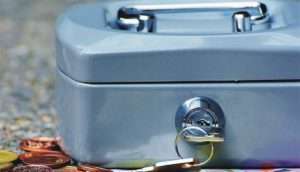The end of the tax year fast approaches – which means you have a short window to take advantage of any unused allowances.
Fortunately, IBISS & Co are here to help you save with a handy blog series on end-of-the-year ‘must-dos’ (be sure to check out the first blog in the sequence if you haven’t already!). We’ll help you make the most of this tax year in the time you have left – read on for some of our top tips.
Pension Possibilities
The annual allowance for tax relief on pension savings (within a registered pension scheme) is £40,000. It’s worth reviewing whether you’ve utilised your full allowance for this tax year yet – or, as you can bring forward unused allowance from the last three years, whether you’d like to make use of any historical unused allowance. Bear in mind that the way contributions are made can have a big impact: for example, pension contributions made via a company can be treated as a business expense and as such can be offset against a corporation tax bill, whereas high-income earners may find that making contributions on an individual basis is not tax efficient due to the risk of reduced tax relief (for those with a net income of over £110,000 – or an adjusted income of over £150,000 – the annual allowance will be tapered).
And don’t forget: if you wish to gift a young relative, a pension scheme payment can prove a tax-efficient present. You can contribute up to £3,600 (gross) per year into a child or grandchild’s pension scheme, tax-free – though they can’t draw on it until they reach the age of 55.
Claim Childcare Vouchers
From the 6th April 2018 the childcare voucher scheme will be closed to new entrants (to be replaced by tax-free childcare). Under the voucher scheme, a portion of a person’s gross salary (up to £243 per month) can be swapped for vouchers to give to a childcare provider. All families with children under 16 are eligible to participate. The newer scheme – introduced in April 2017 – offers eligible families 20p for every 80p they pay towards childcare per year (with a maximum limit of £10,000, so up to £2,000 per child). Only children under 12 are eligible, however, and foster children are excluded. Both schemes have benefits and drawbacks; it’s a question of weighing up which works best for you.
The end of the tax year is looming, though, so do consider the pros and cons sooner rather than later. If you feel the childcare voucher system offers the biggest tax saving, you can still participate – provided you sign up before the deadline and your employer agrees.
Neaten Up Your National Insurance Record
On occasion, gaps can appear in a person’s national insurance record – usually if an individual earned below the relevant threshold during a tax year, experienced a period of unemployment, or lived abroad for a time. And, whilst at first glance you may not be concerned if you’ve underpaid national insurance but haven’t been asked to make it up, in fact this could prove detrimental later in life: when it comes to receiving a state pension, for example, or claiming certain benefits.
The good news is that you can make retrospective national insurance contributions to fill in any gaps – but this can only be done for six years, and the deadline coincides with the tax year end. The 2017-2018 tax year is the final year in which payments can be made to catch up on contributions that were missed during 2011-2012.
Purchase Products
If you are self-employed and you’ve been putting off buying that new business laptop or phone, now is the time to do it. Any such expenses are deducted from your overall business profit for the relevant tax year – so if you make a related purchase before 6th April 2018, not only will you get to enjoy using the new product for work without delay, but also your 2017-2018 tax bill will be reduced.
Don’t forget to keep all receipts, though, and be sure you’re claiming fairly (for example, if you do buy a laptop and use it for work half the time and the other half is spent watching Netflix, you can only claim 50 as a business expense!). HMRC are likely to notice if your profit seems unusually small, so don’t be tempted to ‘soup up’ expenses claims: only claim for things that you’ve genuinely needed to buy to support your business.
And for a Bonus Point… Get Organised!
An optional – yet highly recommended – end-of-tax year activity is to organise all the documentation for that period, ready to file the corresponding tax return when the time comes. Though it’s tempting to leave it until later, both you and your accountant will breathe a sigh of relief if all the paperwork is already collated and easy to access when the time comes.
If you’re preparing paperwork for your 2017-2018 tax return, or would like some help with your 2018-2019 planning, don’t hesitate to give IBISS & Co a call on 0203 808 0999. We’re here to take the stress out of every aspect of the tax year, ensuring that you can get on with the business of running your company – and making certain that every working day is as enjoyable and hassle-free as possible.




